Hot Weather Refrigerator Problems and Solutions
Hot weather can have a significant impact on the performance and efficiency of refrigerators. With rising temperatures, refrigerators have to work harder to maintain the optimal cooling temperature, leading to an increased likelihood of breakdowns and malfunctions.
Understanding the common problems faced by refrigerators during hot weather can help homeowners take proactive measures to prevent or resolve issues, extending the lifespan of their appliance and reducing the risk of food spoilage.
In this blog, we will explore five to ten of the most common hot weather refrigerator problems, providing insight into the root causes and potential solutions.
Hot Weather Refrigerator Problems
Hot weather can have a significant impact on refrigerators, causing various problems that can affect their performance, efficiency, and longevity. Understanding these common hot weather problems is essential for maintaining the health of your refrigerator and ensuring that it continues to function properly.
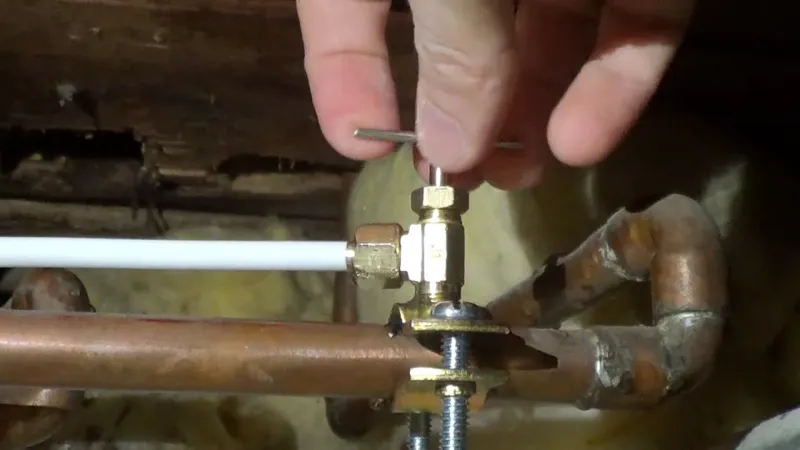
Increased Energy Bills
One of the most significant impacts of hot weather on refrigerators is increased energy bills. When the temperature rises, refrigerators have to work harder to maintain their desired temperature, which leads to increased energy consumption.
This can result in higher electricity bills and place additional stress on the fridge’s cooling system, leading to further problems.
To reduce energy bills during hot weather, it is essential to keep your refrigerator away from direct sunlight, heat sources, and other appliances that generate heat.
You should also make sure that your fridge’s coils and vents are free from dust and debris, which can block the airflow and prevent the cooling system from functioning properly. Additionally, you can consider investing in an energy-efficient refrigerator that uses less energy to cool your food and drinks.
Compressor Failure
Another common hot weather refrigerator problem is compressor failure. The compressor is the heart of the refrigerator’s cooling system, and it has to work continuously to maintain the desired temperature.
If the refrigerator is regularly exposed to hot temperatures, the prolonged stress on the compressor can eventually cause it to fail. This can lead to a loss of cooling efficiency, food spoilage, and the need for costly repairs or replacements.
To prevent compressor failure, it is essential to keep the refrigerator away from heat sources, such as the stove, oven, or direct sunlight. You should also make sure that the fridge’s doors and gaskets are tight-fitting and in good condition, as this will prevent warm air from entering the fridge and causing the compressor to work harder.
Additionally, you can consider having your refrigerator serviced regularly to check for any issues and address them before they become more significant problems.
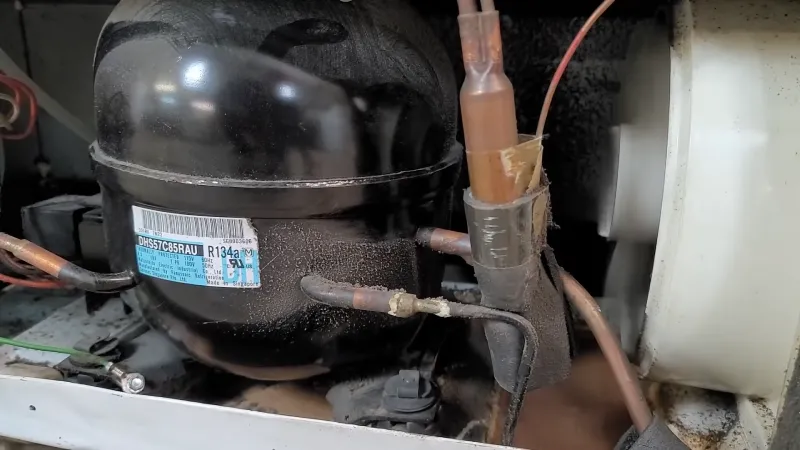
Reduced Cooling Efficiency
Hot weather can also reduce the cooling efficiency of refrigerators by causing wear and tear on gaskets, seals, and other components. This can result in warm air entering the fridge and preventing it from maintaining its desired temperature, leading to food spoilage and reduced cooling efficiency.
To prevent reduced cooling efficiency, it is essential to check the fridge’s gaskets and seals regularly and replace them if they are worn or damaged.
You should also make sure that the fridge’s doors are closed properly, and that the fridge is not overloaded, as this can cause the gaskets and seals to become misshapen and prevent them from sealing properly. Additionally, you can consider installing a thermostat or a temperature monitor in your fridge to ensure that it remains at its desired temperature.
Temperature Fluctuations
Hot weather can also cause temperature fluctuations in refrigerators, leading to food spoilage and reduced cooling efficiency. These fluctuations can be caused by a variety of factors, including poor insulation, a faulty thermostat, or a dirty condenser coil.
To prevent temperature fluctuations, it is essential to keep the fridge’s condenser coils clean and free from dust and debris. You should also make sure that the fridge is properly insulated, and that the thermostat is functioning correctly. Additionally, you can consider installing a temperature monitor in your fridge to keep track of its temperature and address any fluctuations as soon as they occur.
Hot weather can have a significant impact on refrigerators, causing a range of problems that can affect their performance, efficiency, and longevity. By understanding these common hot weather refrigerator problems and taking the necessary steps to prevent them, you can ensure that
Increased Wear and Tear
A refrigerator is a vital appliance in our daily lives and it is essential to keep it functioning properly to avoid food spoilage and keep our food items fresh. However, when the temperatures outside rise, it can cause significant wear and tear on refrigerators, which can lead to breakdowns and costly repairs.
In this section, we will explore how hot weather increases wear and tear on refrigerators and the importance of regular maintenance to prolong its life.
Explanation of How Hot Weather Increases Wear and Tear on Refrigerators: Hot weather can cause a refrigerator to work harder, which can increase the amount of wear and tear on its various components, including gaskets, seals, and the motor.
The gaskets and seals play a critical role in maintaining the temperature inside the refrigerator and keeping warm air out. When the temperature rises, the gaskets and seals can become brittle and crack, which can lead to warm air entering the refrigerator and reducing its cooling efficiency.
Additionally, the increased workload on the motor due to hot weather can cause it to wear out faster, which can lead to a breakdown.
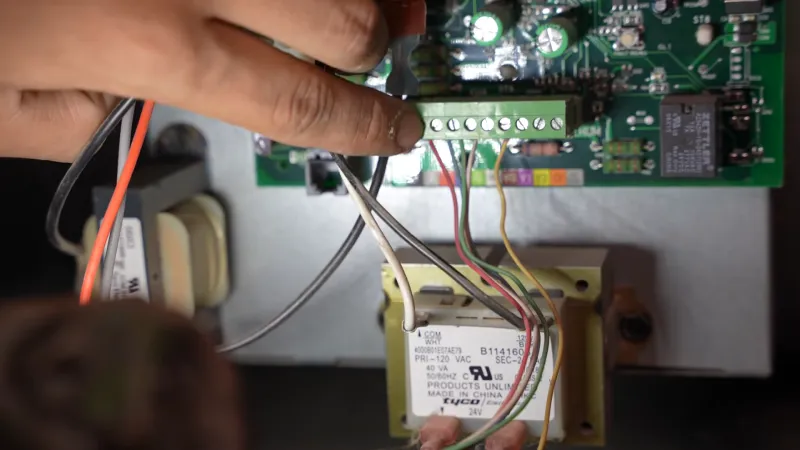
Importance of Regular Maintenance to Prolong the Life of a Refrigerator:
Regular maintenance is crucial in prolonging the life of a refrigerator and preventing the breakdowns caused by hot weather. A few simple steps can go a long way in ensuring that your refrigerator stays in top condition, even during hot weather. Here are a few things you can do to maintain your refrigerator:
Clean the Condenser Coils
The condenser coils play a crucial role in removing heat from the refrigerant, and they can become clogged with dust and debris over time. Regularly cleaning the coils can help maintain the efficiency of the refrigerant and reduce wear and tear on the motor.
Check the Seals and Gaskets
Regularly inspect the seals and gaskets for signs of wear and tear, and replace them if necessary. This will help prevent warm air from entering the refrigerator and reduce the workload on the motor.
Maintain the Correct Temperature
Keeping the temperature inside the refrigerator at the correct level can reduce the workload on the motor and prevent excessive wear and tear.
Hot weather can cause significant wear and tear on refrigerators, but regular maintenance can help prolong its life and prevent costly breakdowns. By taking a few simple steps, you can ensure that your refrigerator remains in top condition and continues to provide you with fresh, cool food and drinks.
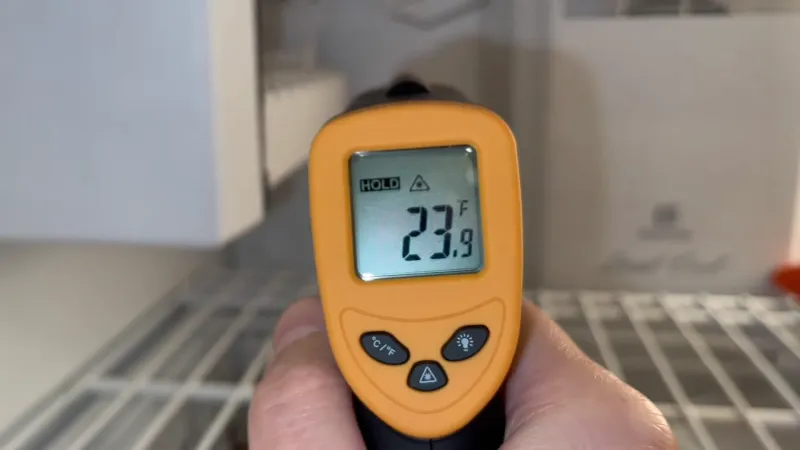
Motor Failure
One of the most serious problems that refrigerators can experience during hot weather is motor failure. The motor is an essential component of any refrigerator, as it powers the refrigeration system that keeps your food and drinks cold. When the motor fails, the entire refrigeration system will stop working, putting your food and drinks at risk of spoilage.
Motor Failure in Refrigerators
The motor of a refrigerator is designed to work under normal conditions, but high temperatures can put extra strain on the motor. This can cause the motor to overheat, leading to its eventual failure. High temperatures can also cause other components in the refrigeration system to fail, which can put additional strain on the motor and exacerbate the problem.
Recognizing the Signs of a Failing Motor and Seeking Prompt Repair
It is essential to be aware of the signs of a failing motor so that you can take prompt action to prevent further damage and minimize the risk of food spoilage. Some common symptoms of a failing motor include a loud or buzzing noise, a burning smell, or an increase in energy consumption.
If you notice any of these signs, it is best to seek prompt repair from a qualified technician. Ignoring these symptoms could lead to further damage to the motor and potentially the entire refrigeration system, leading to costly repairs or even replacement.
Hot weather can cause significant problems for refrigerators, including motor failure. If you want to keep your refrigerator running smoothly during hot weather, it is important to be aware of the symptoms of a failing motor and to seek prompt repair if necessary. Regular maintenance and proper use can also help to prolong the life of your refrigerator and minimize the risk of costly repairs.
Cooling Efficiency Reduction
Hot weather can be extremely tough on refrigerators, leading to a reduction in their cooling efficiency. As the temperature rises, refrigerators are required to work harder to maintain the desired temperature inside. This increased workload can cause refrigerators to lose efficiency and struggle to keep food and drinks cold.
The primary cause of this reduction in efficiency is that refrigerators are designed to work best in moderate temperatures. When the ambient temperature rises, the refrigerant used in the cooling system expands, reducing the pressure and making it more difficult for the refrigerant to circulate. This results in the cooling system working harder to keep the temperature inside the refrigerator at the desired level.
Steps to Improve Cooling Efficiency During Hot Weather
Fortunately, there are several steps you can take to improve the cooling efficiency of your refrigerator during hot weather.
Keep the Refrigerator Away From Direct Sunlight
It is important to keep your refrigerator away from direct sunlight and other heat sources such as ovens, radiators, and windows. The less exposure to heat, the less the cooling system has to work, which will result in improved cooling efficiency.
Proper Ventilation
Proper ventilation is essential to the cooling efficiency of refrigerators. Make sure there is enough space around the refrigerator to allow air to circulate freely, this will help to reduce the temperature inside the refrigerator and improve efficiency.
Clean the Coils
Dust, debris, and pet hair can clog the coils on the back of the refrigerator, reducing the efficiency of the cooling system. Clean the coils regularly to ensure that air can circulate freely and the cooling system is working at peak efficiency.
Keep the Door Seals Tight
Make sure the door seals are tight and in good condition, this will prevent warm air from entering the refrigerator, and keep the cooling system from working too hard.
By taking these steps, you can help improve the cooling efficiency of your refrigerator and keep your food and drinks at their desired temperature even in hot weather.
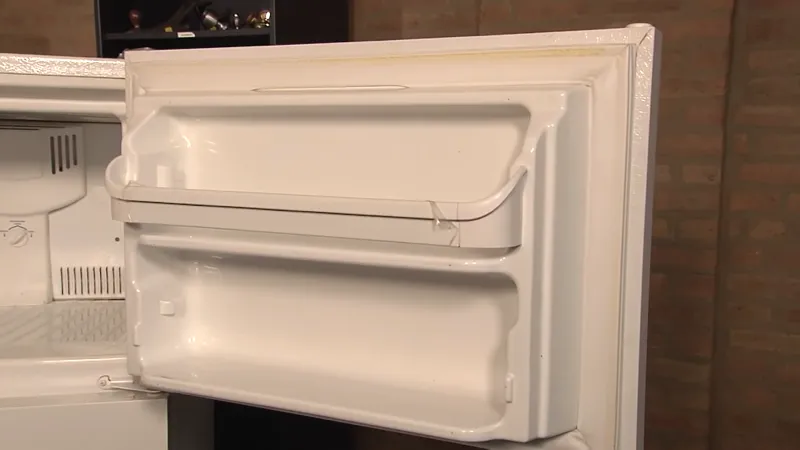
Garages and Other Outdoor Areas
Keeping refrigerators in garages or other outdoor areas during hot weather can be dangerous, as the high temperatures can cause a variety of problems. For example, refrigerators that are exposed to direct sunlight or extreme heat can experience reduced cooling efficiency, increased wear and tear, and even motor failure.
In addition, outdoor refrigerators are also more vulnerable to damage from extreme weather conditions, such as thunderstorms and hurricanes.
Alternative Locations for Refrigerators During Hot Weather
If you need to keep your refrigerator in a garage or outdoor area during hot weather, it is important to choose an alternative location that is more protected from the elements. For example, you may consider installing a shading device, such as an awning or shade cloth, to protect your refrigerator from direct sunlight.
You could also consider moving your refrigerator to an indoor location, such as a basement, if possible. Additionally, it is important to regularly check your outdoor refrigerator for signs of damage and perform regular maintenance to keep it in good working order.
Maintaining Proper Temperatures
The ideal temperature range for refrigerators is between 33°F and 40°F. This temperature range is necessary to keep food and drinks safe from harmful bacteria and to extend their shelf life. Keeping the temperature within this range is especially important during hot weather, when food is at a greater risk of spoilage.
Importance of Monitoring and Adjusting Temperatures
Hot weather can cause refrigerators to struggle to maintain their ideal temperature range, leading to a number of problems, such as increased energy consumption, increased wear and tear, motor failure, and reduced cooling efficiency. To prevent these problems, it is important to monitor the temperature of your refrigerator regularly and adjust it as needed.
One way to monitor the temperature is to use a thermometer specifically designed for refrigerators. Simply place the thermometer in the refrigerator and check it regularly to make sure the temperature is within the ideal range. If the temperature is too high, adjust the thermostat to a lower setting, and if it is too low, adjust it to a higher setting.
Another way to prevent hot weather problems is to keep your refrigerator away from sources of heat, such as windows and appliances. If you have a garage or other outdoor area, consider moving your refrigerator indoors to a cooler location during hot weather.
Maintaining the proper temperature in your refrigerator is crucial to preventing hot weather problems and ensuring that your food and drinks remain safe and fresh. By monitoring and adjusting the temperature regularly, you can help extend the life of your refrigerator and reduce the risk of costly repairs.
Editor’s Note
Hot weather can have a negative effect on refrigerators. The warmer the surrounding air, the harder the refrigerator has to work to maintain the proper temperature. This prolonged stress on the motor can eventually lead to failure.
Additionally, hot air temperatures can increase wear and tear on gaskets, seals, and other components, reducing cooling efficiency. Keeping a refrigerator in a garage or other area exposed to outdoor temperatures will likely lead to higher energy bills and an increased likelihood of breakdowns.
To prevent these issues, it’s best to keep the refrigerator inside, with the temperature of the house set between the mid-60s to low 70s.
7 Common Refrigerator Repair Problems – Solutions
Conclusion
Hot weather can pose significant challenges for refrigerators, leading to increased energy bills, increased wear and tear, motor failure, reduced cooling efficiency, and even potential danger if kept in outdoor areas.
It is crucial to be aware of these issues and take proactive steps to maintain proper temperatures, monitor for warning signs, and perform regular maintenance. By following these guidelines, homeowners can help prevent hot weather refrigerator problems and keep their appliances functioning smoothly, even during the hottest months of the year.

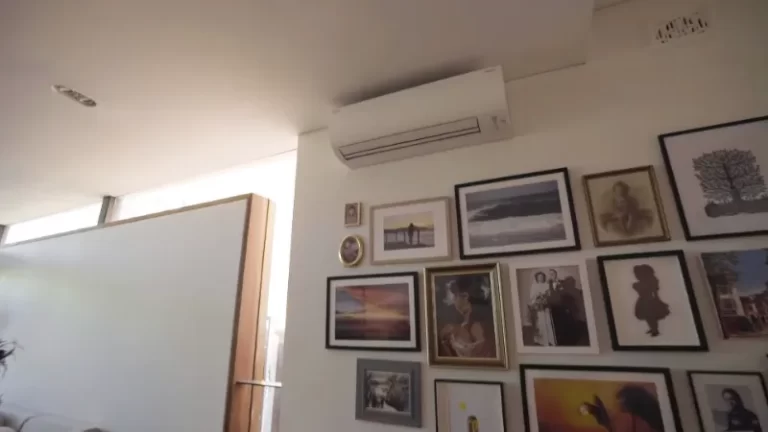

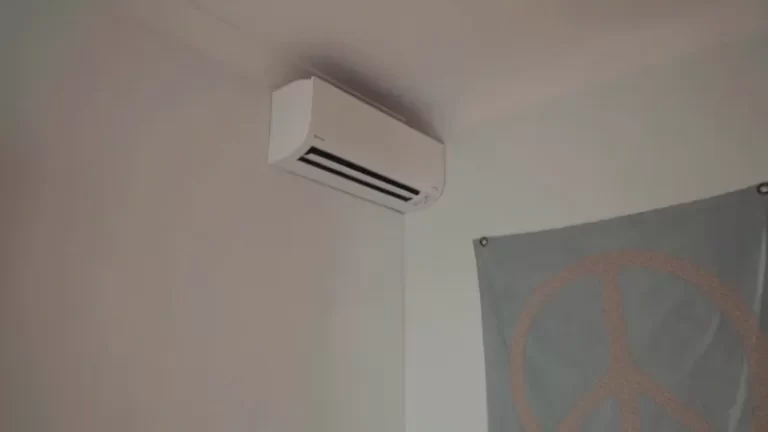
![LRA Vs RLA [Are They Same? Differences]](https://fixitinthehome.com/wp-content/uploads/2023/02/LRA-Vs-RLA-768x432.webp)

